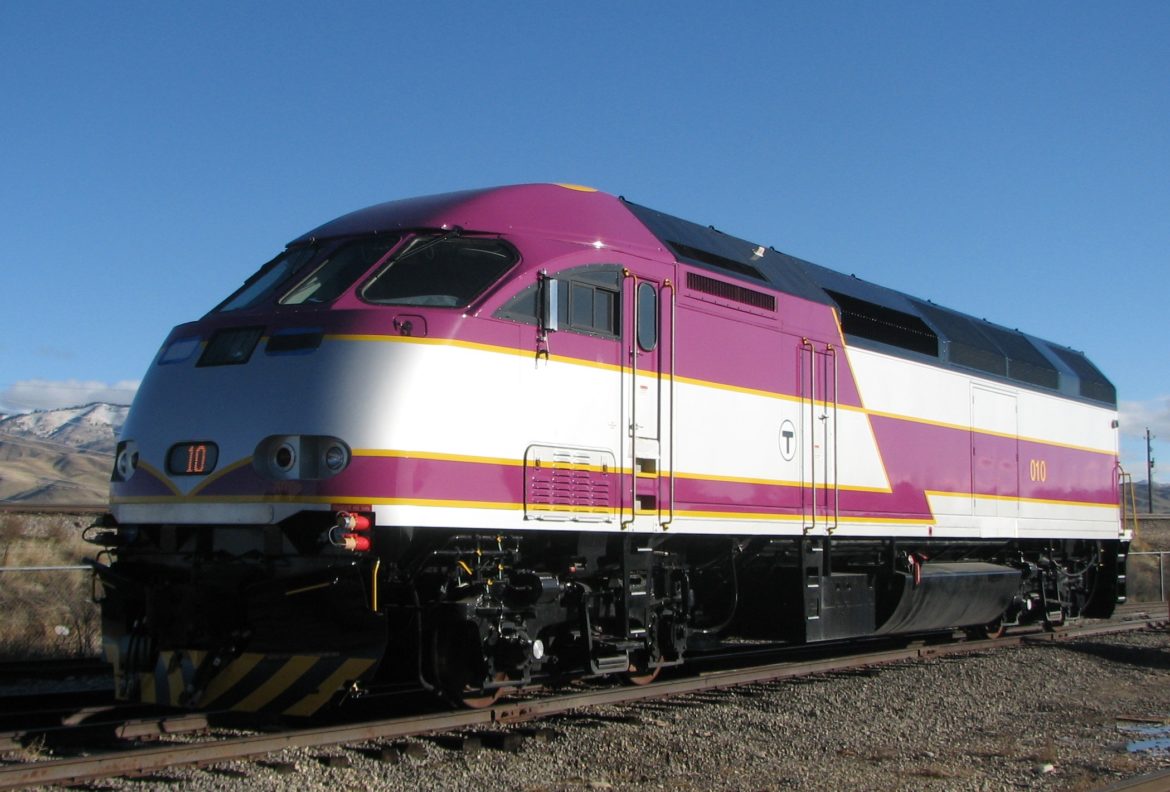By PAULA TRACY, InDepthNH.org
NASHUA – New Hampshire could have commuter rail service connecting Nashua, Manchester and its airport with the MBTA line at Lowell, Mass., in the coming years as the Executive Council has approved a $5.4 million engineering and public outreach contract for the NH Capitol Corridor rail project.
Former Executive Councilor Debora Pignatelli, D-Nashua, said she was proud that among her last votes in her most recent two-year term on the Council was to see “the needle move” on this long-discussed commuter rail project.
It could reduce congestion on the roadways in southern New Hampshire connecting Massachusetts, improve the chance young professionals would move to the Granite State, and have many other positive economic and social impacts, Pignatelli said.
The Council voted unanimously Dec. 18 to allow the Department of Transportation to contract with AECOM Technical Services Inc. of Manchester to refine costs, develop a realistic financial plan, provide management, coordination, and communication, conduct sufficient engineering to complete a federal environmental analysis, and complete designs plans and specifications, among other tasks, for the $5,448,607 contract.
A stakeholders meeting to kick things off is planned for Jan. 13, Pignatelli said. This meeting will include officials from Manchester-Boston Regional Airport, the cities of Nashua and Manchester, regional and local planning commissions, the Federal Transit Administration, Massachusetts Department of Transportation, along with the MBTA, and Pan Am, which operates rail freight on the existing rail line.
The plan would essentially look to return passenger service by improving the existing rail line and connecting passenger service at Lowell which currently has MBTA service into Boston. There would be 10 miles of track studied between Lowell and Nashua under the plan and another 25 miles of track from Manchester to Nashua.
While the NH Capitol Corridor is 78-miles long, this would study the southern 35 miles. A separate and future federal study could include the 18 miles between Concord and Manchester, Transportation Commissioner Victoria Sheehan said.
She told the Council that AECOM, selected by competitive bid with four firms on the shortlist, enjoys an “excellent reputation and has demonstrated their capability to perform the required services.” They will also subcontract.
Its scope of services AECOM provided to the Department of Transportation in support of the contract said, “our approach will be to respectfully listen to and hear concerns” and focus on new rather than old, resolved issues.
The firm hired as a subcontractor Fitzgerald & Halliday to develop a draft public outreach and communications plan within 60 days of the signing of the contract. The plan allows for robust public input over its 18-months of study.
Pignatelli noted that the last analysis of the rail potential was completed in 2014 with a comprehensive report that can be found here https://www.nh.gov/dot/org/aerorailtransit/railandtransit/documents/fr-summary.pdf.
The hope is that engineering can build off the plan and adjust it, including factors such as a decline in the number of commuters since the pandemic, Pignatelli said. But she said even now, congestion and travel time is long between her area of the state and Boston at peak rush hours.
The plan will look to use the rolling rail stock and crews of the MBTA for service and upgrade 30 miles of track, 15 bridges, 20 road crossings, complete a new signal system and connect the airport at Manchester with the MBTA to Boston.
“It has been my hope and dream,” Pignatelli said, “to allow for a state-federal and private partnership…which will tie into other rail systems so that eventually you could ride the rails from Canada to Florida,” Pignatelli said.
In June 2019, Gov. Chris Sununu allowed Senate Bill 241 to go into effect without his signature. It allowed the state to apply for these federal grant funds by putting the NH Capitol Corridor commuter rail idea into the state’s 10-year highway plan.
Former state Sen. Melanie Levesque, D-Brookline, the prime sponsor, said in 2019 that the resumption of passenger rail along the Capitol Corridor is “a key component to New Hampshire’s efforts to grow our economy, ease traffic, improve commutes and attract and retain young professionals.”






